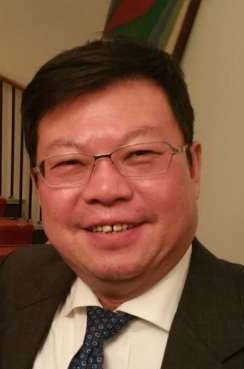Lancôme in Hong Kong, a too fat stroke of a grease pencil
How could a renowned French brand of Lancôme under L’Oréal, which has been in the Hong Kong market for more than 30 years, be trampled so badly due to its sudden withdrawal of sponsorship to Hong Kong singer Denise Ho? What lessons could be learned from a chain of events that have led to the boycott on one of the French jewels in Hong Kong? A deep understanding and analysis of the situation on the ground is never a waste of time. Meanwhile, further elaboration would be needed, both in Hong Kong and on the Mainland, two embedded but genuinely different markets.
Firstly, the impromptu cancellation (on June 5th) in Hong Kong of the concert (already sold out at that time) organized by Lancôme (for the 19th of June) with the singer Denise Ho, without evoking any other purposes than « possible safety reasons » (knowing that Hong Kong ranks in the safest Asian cities), has been a bitter pill to swallow. Some interpret this is an act of insult to the Hong Kong consumers. The always very well informed people of Hong Kong, who benefit at the same time from an access to Western and to Mainland China information, have right away put it together with the lines published the day before on Weibo (a microblogging website from the Mainland), by the Global Times. The newspaper, whose head office is in Beijing, was calling Denise Ho an advocate of the Hong-Kong and Tibet independence. Thus, Denise Ho was regarded as the reverse promotion strategy of Lancôme in Hong Kong.
An excessive reaction
Did L’Oréal need to be frightened by these threats? Nothing is less certain, given that the Global Times is not at all the official voice of the government of China. In fact, the important messages coming from the president of the People’s Republic of China, Xi Jinping, are released by the agency Xinhua. Those coming from the Party are broadcast by the People’s Daily. The Global Times, which is a subsidiary of the People’s Daily, has, in reality, a little impact. Furthermore, the publication doesn’t go very well with the Chinese authorities. The Global Times, has actually been criticized and sanctioned many times for running “sensationalist” reports. Its electronic version has even been slammed (last mid-May) by the mainland’s top internet regulator: The Cyberspace Administration of China said publicly that a recent poll concocted by the Global Times was “a serious violation of news discipline and had caused serious political consequences.” It must be noted that this analysis of the Mailand China media landscape contradicts the thesis of the pressures emanating from Beijing’s power via the press, towards L’Oréal Group. According to this observation, the immediate reaction of the cosmetic Group, following the Global Times article, seems excessive.
A similar conclusion applies to Denise Ho’s sidelining. This personality wasn’t not considered as dangerous by the Chinese authorities. While the singer is constructing herself an image « of activist » in Hong-Kong, she doesn’t belong to any political organization banished by the Chinese government. From Mainland China, the artist, born in Hong-Kong, but who has also lived in Canada for a long time, was not considered to be a threat, rather to be a little bit original newcomer into Hong Kong’s controversial scene. That is why, the blackout of the dialogue with Denise Ho initiated by L’Oréal Group looks disproportionate.
Fierce competition in China
Could the activity of the group L’Oréal be destabilized one day, under the influence of the Chinese government? This hypothesis is not the one to favor, thanks to the social implication of the French group’s presence on the Chinese Mainland since 1997. It employs approximately 4 500 people China wide. It has also established a research laboratory in Shanghai, among its assets of three factories in Suzhou, Yichang and in Guangzhou.
From then on, where does this extreme anxiety of being boycotted in Mainland China come from? Fierce competition from the Japanese and Korean brands? Are those brands really competible in terms of history and reputation? Anti Japanese sentiment still permeates in large parts of China while Korean brands are new comers. Lancôme is still one of the strong brands, under the L’Oréal Group, in China’s cosmetic market. Chinese women, in general, continue to be infatuated with make-up from reputable foreign cosmetic brands, despite the so called economic slow down.
In 2015, the sales of L’Oréal in China have been able to grow again, by 4,6 % (at 14,96 billion yuans), to compare with 7,7 % in 2014. Meanwhile, China has become the second largest market for the French cosmetic group (next only to the United States).
This rank may be maintained, on one condition, leaders of the L’Oréal Group should not underestimate the value of understanding the true influencing forces of the business environment, both in Mainland China and in Hong Kong. To begin with, l’Oréal Group should perhaps build a strong crisis management team in order to repair all the damages done to Lancôme’s reputation in Hong Kong.
Find all Albert Louie advice by clicking here

